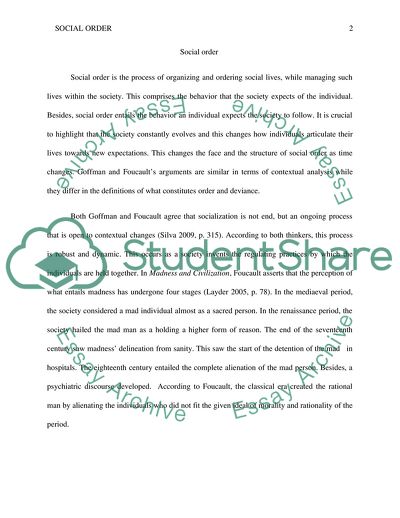Cite this document
(Goffmans and Foucaults Views about the Ordering of Social Life Essay, n.d.)
Goffmans and Foucaults Views about the Ordering of Social Life Essay. https://studentshare.org/sociology/1825466-compare-and-contrast-goffmans-and-foucaults-views-about-the-ordering-of-social-life
Goffmans and Foucaults Views about the Ordering of Social Life Essay. https://studentshare.org/sociology/1825466-compare-and-contrast-goffmans-and-foucaults-views-about-the-ordering-of-social-life
(Goffmans and Foucaults Views about the Ordering of Social Life Essay)
Goffmans and Foucaults Views about the Ordering of Social Life Essay. https://studentshare.org/sociology/1825466-compare-and-contrast-goffmans-and-foucaults-views-about-the-ordering-of-social-life.
Goffmans and Foucaults Views about the Ordering of Social Life Essay. https://studentshare.org/sociology/1825466-compare-and-contrast-goffmans-and-foucaults-views-about-the-ordering-of-social-life.
“Goffmans and Foucaults Views about the Ordering of Social Life Essay”. https://studentshare.org/sociology/1825466-compare-and-contrast-goffmans-and-foucaults-views-about-the-ordering-of-social-life.


